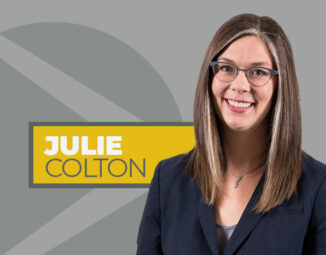New Child Custody Law Opens Door a Bit for Grandparents, Third Parties
On July 4, a change to the child custody laws in Pennsylvania is set to impact standing for grandparents and third parties. Historically, grandparents have been given an elevated status with regard to child custody matters. Normally, only parents or people acting as parents (in loco parentis) are individuals who may seek custody of a child. However, because of the elevated status given to grandparents, they are a special group of people who can also seek custody even if they do not stand in loco parentis. This special treatment given to grandparents predates the current Child Custody Act which went into effect in 2012 as well as the act that preceded it.
In 2016, in the case of D.P. v. G.J.P., 146 A.3d 204 (Pa. 2016), the Pennsylvania Supreme Court held that a portion of the Custody Act granting grandparents standing to seek custody of a child to be unconstitutional. The Supreme Court’s ruling closed the door to the courthouse to a degree and grandparents no longer had as many avenues to seek custody of a grandchild. At the time that the Supreme Court decided the DP case, under the 23 Pa.C.S. Section 5325(2), grandparents had standing to seek partial physical custody of a child: “Where the parents of the child have been separated for a period of at least six months or have commenced and continued a proceeding to dissolve their marriage.” It has been interpreted by the Superior Court that Section 5325(2) also grants standing to grandparents of children born out of wedlock.
In the D.P. case, the Supreme Court struck the following portion from Section 5325(2): “have been separated for a period of at least six months or.” Therefore, unless grandparents met other statutory requirements, they would no longer have standing solely based on the condition that the parents of the child were never married or have been separated for at least six months. A divorce proceeding between the parties would have to be instituted in order for the grandparents to come through the courthouse doors under Section 5325(2) in the post-D.P. world.
The new custody legislation that becomes effective on July 4 dramatically changes the landscape of grandparents’ standing (as well as third parties’ standing, also to be discussed in this article below). The new law adjusts 23 Pa.C.S. 5325(2) to provide grandparents and great-grandparents standing to file an action for partial physical custody or supervised physical custody: “Where the relationship with the child began either with the consent of a parent of the child or under a court order and where the parents of the child: have commenced a proceeding for custody; and do not agree as to whether the grandparents or great-grandparents should have custody under this section.”
Because of the new legislation, there is no longer a requirement that the parents of a child must have a divorce action pending. Instead, a custody action has to exist. Under the new law, the door that started to close because of the Supreme Court’s decision has now opened a bit. However, it is being opened more carefully. A concern in the Supreme Court’s decision was where parents agree that a grandparent or grandparents should not have custodial time with the children. Under the new law, that concern is preserved as one of the prongs provides that if the parents agree upon whether the grandparents may be involved in the child’s life the door does not open to those grandparents. Further, in an instance where the parents have never been married, the grandparents are no longer precluded from coming to court if a custody action already exists between the parties. The new law strikes an equitable balance between the prior law and the Supreme Court’s DP decision.
Just as important, the new law opens the door to other individuals who may bring a custody action. It is well known that there is an opioid crisis, along with other situations, that are causing children’s parents to be unavailable to care for them and others are tasked with stepping up to the plate and caring for the children. Because, traditionally, only grandparents received elevated status, only parents or people qualifying under in loco parentis status could seek custody of children. In many instances, for example, in opioid-related situations, an aunt, uncle or family friend may be the best option for raising a child. However, under the prior law, that person may not qualify as having in loco parentis status and, therefore, banned from walking through the courthouse doors and seeking custody of the child. With the new law, that all changes. The new law provides that an individual has standing for any form of physical or legal custody of a child when he or she establishes “by clear and convincing evidence” all of the following: “The individual has assumed or is willing to assume responsibility for the child. The individual has a sustained, substantial and sincere interest in the welfare of the child. In determining whether the individual meets the requirements of this subparagraph, the court may consider, among other factors, the nature, quality, extent and length of the involvement by the individual in the child’s life. Neither parent has any form of care and control of the child.” This type of standing does not apply if a dependency proceeding involving the child has been initiated or is ongoing or there is an order of permanent legal custody under the law for disposition of dependent children.
As can be gleaned from the plain meaning of the new law, in a situation where neither parent has any form of caring control of the child, as long as an individual is willing to assume responsibility for the child and has a sustained, substantial, and sincere interest in the welfare of the child, that individual has the ability to seek custody of the child. This is a victory for children across the state who find themselves in situations where neither of their parents are available to care for them.
It is important that the bench and the bar pay close attention to this new custody law, as it drastically changes the landscape of child custody in Pennsylvania.
New Child Custody Law Opens Door a Bit for Grandparents, Third Parties.pdf
Michael E. Bertin is a partner at the law firm of Obermayer Rebmann Maxwell & Hippel. He is co-author of the book “Pennsylvania Child Custody Law, Practice, and Procedure.” Bertin is a fellow of the American Academy of Matrimonial Lawyers, a former chair of the family law section of the Philadelphia Bar Association, the current co-chair of its custody committee, and holds the officer position of first vice chair of the family law section of the Pennsylvania Bar Association. Contact him at 215-665-3280 or michael.bertin@obermayer.com.
The information contained in this publication should not be construed as legal advice, is not a substitute for legal counsel, and should not be relied on as such. For legal advice or answers to specific questions, please contact one of our attorneys.
Reprinted with permission from the June 27, 2018 edition of The Legal Intelligencer © 2018 ALM Media Properties, LLC. All rights reserved. Further duplication without permission is prohibited. For information, contact 877-257-3382, reprints@alm.com or visit www.almreprints.com. # 201-06-18-08






